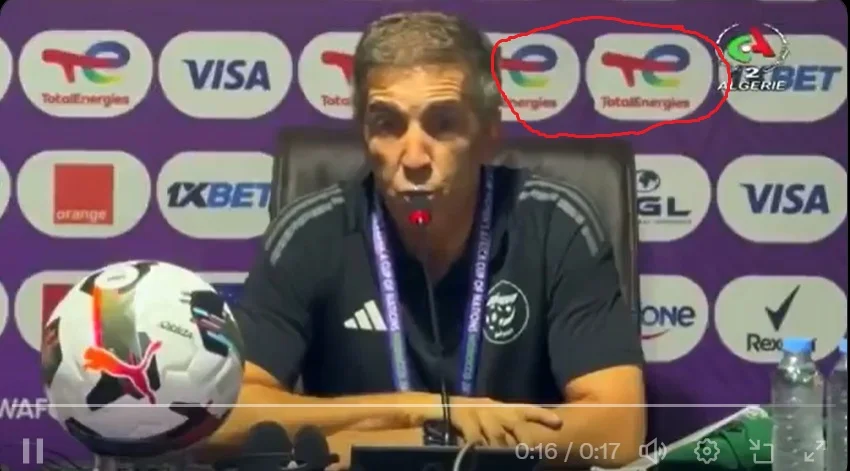A Deliberate Effort to Erase Morocco from Public Media
In a recent incident that has sparked widespread discussion, Algerian public television was found to have intentionally removed the logo of Royal Air Maroc (RAM), the Moroccan national airline and an official sponsor of the 2024 Women’s Africa Cup of Nations. The event, which is currently being held in Morocco from July 5 to 21, saw the airline’s emblem disappear from footage broadcast during a press conference led by coach Farid Benstiti.
The logo, which was clearly visible on the CAF-approved backdrop, was edited out of the footage, violating the tournament’s visual identity guidelines. This act of censorship was revealed after unaltered clips surfaced online, including one shared by La Gazette du Fennec, which displayed the full sponsor backdrop. The removal of the logo was quickly recognized as deliberate, leading to a surge of criticism on social media platforms.
This is not the first time such actions have been observed. Algerian public media has consistently engaged in a broader strategy of erasing references to Morocco. This includes omitting coverage of the Moroccan national team’s achievements or avoiding any mention of Morocco’s name or imagery, even in major continental and international events. Such practices reflect a deep-seated effort to downplay or eliminate the presence of Morocco in the public eye.
It is important to note that official sponsors of continental tournaments are legally protected through agreements with the Confederation of African Football (CAF). These agreements require all media outlets to respect the tournament’s visual identity, including the display of sponsor logos. From this perspective, the removal of Royal Air Maroc’s logo represents a clear breach of these regulations. This could potentially lead to legal or regulatory consequences for Algerian television.
The efforts to erase Morocco’s presence did not stop at the airline’s logo. Images originally posted on the official account of the Algerian women’s national team and later shared by the Algerian Football Federation also showed the words “Morocco 2024” erased from the official tournament logo. This further demonstrates a coordinated attempt to deny recognition of the host country, highlighting a consistent pattern of omission and manipulation.
Broader Implications of the Censorship
The deliberate removal of Morocco-related content from Algerian media raises serious concerns about the integrity of information dissemination. It suggests a systemic approach to shaping public perception, rather than presenting an objective view of events. This kind of censorship not only affects the visibility of Morocco but also undermines the credibility of the media itself.
Such actions may have long-term repercussions, both domestically and internationally. They can damage the reputation of Algerian media and raise questions about the country’s commitment to transparency and fairness. Additionally, they may strain diplomatic relations between Algeria and Morocco, as well as other African nations involved in the tournament.
The incident also highlights the importance of adhering to agreed-upon guidelines in international sporting events. Sponsors and organizers rely on consistent representation to ensure the success of their branding and the overall experience for fans and participants alike. When these guidelines are ignored, it not only affects the sponsors but also diminishes the quality and professionalism of the event.
Calls for Accountability and Transparency
In light of these developments, there have been growing calls for accountability and transparency from Algerian public media. Advocates argue that the media should serve as a neutral platform for information, rather than a tool for political or ideological agendas. This includes respecting the rights of sponsors and ensuring that all participants in international events are represented fairly.
As the 2024 Women’s Africa Cup of Nations continues, the focus remains on the athletes and the spirit of competition. However, the ongoing efforts to erase Morocco from the narrative cast a shadow over the event. It serves as a reminder of the power of media and the responsibility that comes with it.
Ultimately, the incident underscores the need for a more inclusive and honest approach to reporting. By upholding the principles of fairness and objectivity, media organizations can contribute to a more informed and cohesive society.







